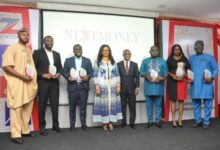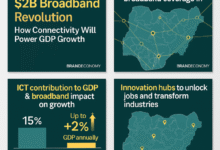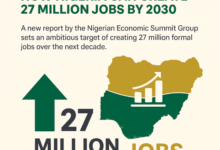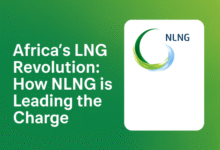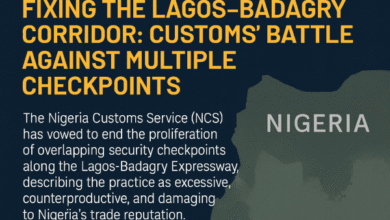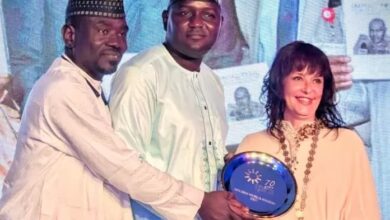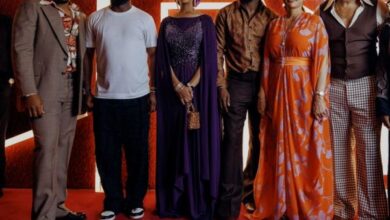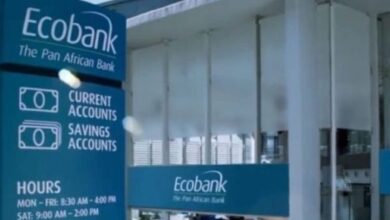DBN crosses ₦1 Trillion in MSME disbursements, supports 1.2 Million jobs, seeks more capital
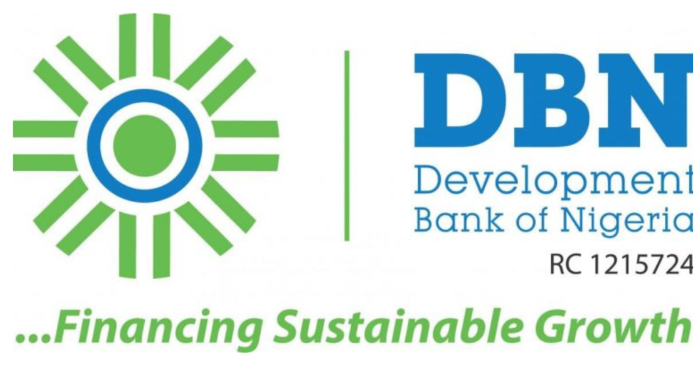
The Development Bank of Nigeria (DBN) has crossed a major milestone, disbursing over ₦1 trillion to Micro, Small, and Medium Enterprises (MSMEs) across Nigeria while facilitating the creation of more than 1.2 million jobs, according to its Managing Director, Dr. Tony Okpanachi.
Speaking on the sidelines of the African Development Bank (AfDB) Annual Meetings in Abidjan, Côte d’Ivoire, Okpanachi highlighted the disbursement achievement as a landmark in DBN’s mission to unlock long-term finance for MSMEs—a critical engine for Nigeria’s economic inclusion, employment generation, and resilience.
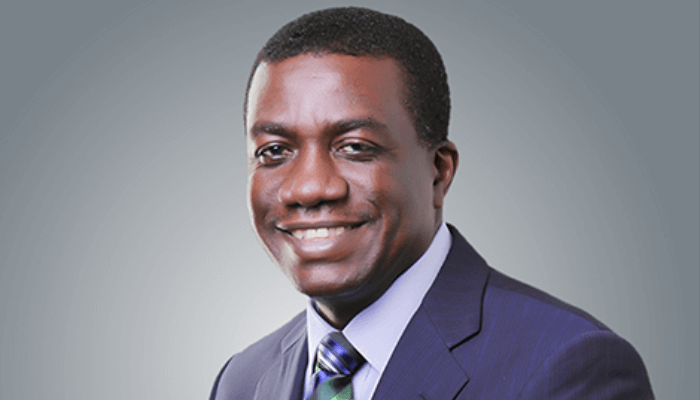
“This milestone is a validation of our wholesale lending model. By the end of 2024, we had disbursed over ₦1 trillion through our partner financial institutions, improving livelihoods and stimulating economic activity across Nigeria,” Okpanachi said.
A Model Built on Leverage, Inclusion, and Partnership
DBN’s impact has been achieved through a wholesale funding approach, where capital is channelled to commercial banks and microfinance institutions, which in turn lend to MSMEs across various sectors—especially those at the grassroots and informal economy levels.
Okpanachi emphasized that this model has helped reach underserved business owners who previously had no access to patient, affordable finance.
Yet, the DBN chief was candid about the challenges ahead.
“The financing gap in Nigeria’s MSME sector remains wide. We have made progress, but we are far from closing the access deficit. We need stronger collaboration, policy innovation, and scale to fully unlock MSME potential,” he noted.
Beyond Disbursement: Development Financing with Impact
DBN’s ₦1 trillion milestone is not merely a numerical feat—it represents a broader push to make development finance more inclusive, scalable, and growth-oriented. According to internal impact tracking, the funds disbursed supported over 1.2 million jobs, both directly and indirectly, spanning agriculture, trade, light manufacturing, and services.
But Okpanachi was clear that sustainable finance is not just about capital. It’s about ecosystem building.
“We must deepen institutional support, drive financial literacy, and align lending with national productivity goals. We also need to better integrate green financing and technology for even greater impact,” he added.
A Call for African-Led Development Finance: Look Inward, Grow Stronger
At the broader continental level, DBN is joining the chorus for Africa-led capital mobilisation, urging policymakers and financial institutions to reduce dependence on external aid and concessional debt.
“African countries must start looking inward. We need to tap our domestic capital markets, reform pension fund deployment, and create investment-grade pipelines that attract both local and global capital,” Okpanachi said.
He stressed that the private sector must be more involved, with national Development Finance Institutions (DFIs) serving as strategic enablers and risk mitigators.
Strategic Focus Areas: Agriculture, Trade, and Infrastructure
Looking ahead, DBN is placing increased focus on high-impact sectors, particularly:
- Agriculture & Agro-processing: to drive food security and rural employment
- Infrastructure finance: to bridge the continent’s productivity gap
- Intra-African trade: to capitalize on the African Continental Free Trade Area (AfCFTA)
“Development finance must be proactive, not reactive. These sectors can deliver real transformation if we structure finance effectively and build institutional capacity,” Okpanachi said.
Leadership Continuity at AfDB: Adesina’s Legacy Praised
Dr. Okpanachi also paid tribute to Dr. Akinwumi Adesina, the outgoing President of the AfDB, noting that under his decade-long tenure, the bank’s capital base nearly tripled, while cumulative disbursements surpassed those of its first 50 years combined.
“Adesina has redefined what’s possible in African development finance. His vision has created a platform for others to build on. We now need continuity in leadership and innovation to sustain the momentum,” he concluded.
BRANDECONOMY Insight
💸 DBN’s ₦1 trillion disbursement shows that development finance, when well-structured, can be both catalytic and inclusive. But with a $158 billion MSME credit gap in Nigeria alone, this is just the beginning. Future success will hinge on domestic capital mobilisation, ecosystem collaboration, and smarter, tech-enabled risk management.
AT A GLANCE
- Total Disbursed by DBN: ₦1 Trillion+
- Jobs Supported: 1.2 Million+
- Delivery Model: Wholesale lending through commercial banks & MFIs
- Strategic Focus: MSMEs, Agriculture, Infrastructure, Intra-African Trade
- Capital Mobilisation Call: Pension funds, domestic markets, private-sector partnerships
- AfDB Tribute: Akinwumi Adesina hailed for transformative leadership
For in-depth coverage of MSME financing, development banking, and Africa’s evolving capital strategy, stay with BRANDECONOMY.


